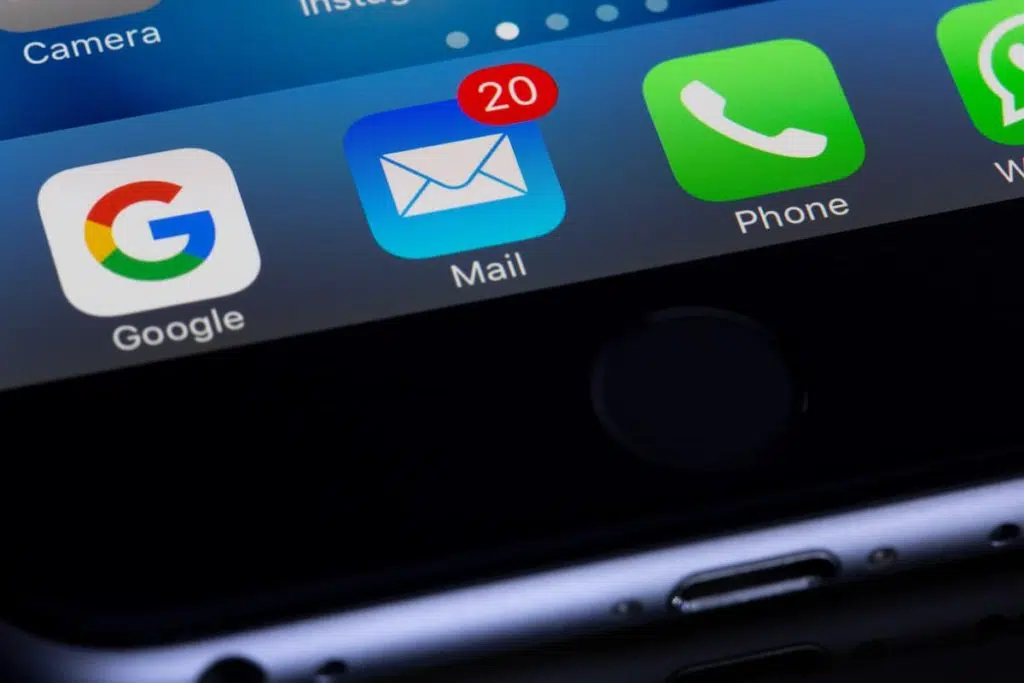Data and consumer privacy has become a topic which has faced heightened prevalence over the last few years, notably in 2018, when the GDPR rules were enforced. Data protection is an area that must be taken extremely seriously, as consumers are within their rights to complain if they feel their information is being misused, resulting in serious fines.
Marketers have previously had to adapt to ensure that consumers are able opt in to direct marketing and also have the option to opt out. However, marketers are facing a new wave of challenges regarding email marketing. iOS 15 is expected to be released around September 2021 and if it’s like iOS 14 it will take around a month to roll out to everyone, just in time for the busy run-up to Black Friday/Cyber Monday and Christmas.
The Apple iOS 15 update is already creating a stir due to the implementation of stronger privacy features that could limit marketers’ ability to gather information on email campaigns. We take a look at iOS 15, email marketing, and the future of data protection moving forward.
What is the Apple iOS 15 update changing?
Although the update will encompass a range of features including Siri, Apple Maps, Face Time and Safari, the element where marketers are concerned is Apple’s Mail app.
As part of the update, Apple’s Mail app will have Mail Privacy Protection, meaning that all emails viewed in the Apple Mail App will be relayed through Apple servers. For example, an email sent to a Gmail address or a work account but opened in Apple Mail will have the same privacy protection as an email sent to an iCloud address.
This means that all of the tracking pixels will be loaded before your subscriber even receives your email, resulting in lots of false opens in your email marketing report for all of your subscribers using Apple Mail. It will also hide IP addresses so senders are unable to learn the user’s location.
This new feature is not compulsory for Apple users as they will have the choice on whether or not to opt in to Mail Privacy Protection. However judging on the language and icons used on the notification, as well as the fact that ongoing analysis shows that 96% of US users are opting out of the ad tracking feature that was released in iOS 14.5 we can assume this will have a similar uptake.
Furthermore, there are some paid features which will further conceal users’ identities. Private Relay, which encrypts data and anonymises users IP addresses means that websites can’t see where you’re browsing from. This offers the same privacy as a VPN (virtual private network) however Apple’s offering is more limited than a traditional VPN. This is because you can’t use the Private Relay to change your location and currently it only seems to cover web browsing data in Safari but this could change before it launches.
The second feature is Hide My Email which will allow users to generate a random email address when signing up for newsletters or for websites where one is required to proceed further or make a purchase.
Although users will receive emails to their real address, the website will not have access to this information. The Mail Privacy protection will be free for all users so this will have the largest impact on your email marketing. Hide My Email and the Private Relay are part of the iCloud subscription which starts at $0.99 per month for 50GB storage.
Email marketing is therefore firmly in the firing line of the latest update.

What does iOS 15 mean for consumers?
Due to the sensitivities surrounding data misuse, Apple users may feel like breathing a sigh of relief. Apple’s virtual assistant Siri, has particularly become a talking point when it comes to controversies. However, the update means that Siri will no longer send speech recognition to a server for processing and instead, will process it on the device. The update also allows users to have more control over their data and who has access to it. From this point of view, consumers can feel further protected whilst they are securely browsing.
What does iOS 15 mean for marketers?
Understandably, the update will cause complications for marketers who would generally use data to determine how successful an email campaign has been. A key factor to consider is the absence of data on open rates, as this will have knock on effects for engagement information.
Adding onto this, some subscribers may not be engaging with the campaigns, but are still on the email lists. This may have troublesome implications for the accuracy of data and perhaps more concerningly, spam. One of the best practices considered for sending large campaigns is removing inactive subscribers as a way of avoiding spam. However, being unable to gauge who is or is not opening your email campaigns poses challenges for delivering effective marketing.
Regardless, there are some actions you can take to make the process easier. Firstly, it may be beneficial to look at your audience data to see how many of them use Apple Mail. If this is a small segment of your overall audience, ultimately the update may not have much of an impact.
You should also utilise the data you already have from the campaigns and emails you have delivered so far. Consult the data to grasp an idea of what types of content produces the most effective open rate. Use what you already have to inform your strategy once the update comes around.

What is the consensus on data usage?
Apple has previously fallen into hot water after allegations that contractors have been listening to private Siri voice recordings. Statistics support the notion that this is a growing concern outside of Apple. In fact, UK Statista data from 2021 found that more than 50% of respondents were more concerned about their online privacy when compared to a year ago, with only around 6% saying they were less concerned.
With the pandemic meaning more people are at home and using digital devices, it is understandable why the concerns over data security would also increase. It should be noted that consumers are becoming far more cautious about the data they share, which is also understandable given the number of high profile data breaches across a variety of sectors.
Notable examples include travel providers such as British Airways and EasyJet, resulting in thousands of customers having their personal and banking details accessed by hackers. Social media platforms have also been susceptible to large-scale data breaches with cases such as LinkedIn and the Facebook Cambridge Analytica scandal, which resulted in millions of users having their data breached.
What is the future of data and privacy?
Going forward, it is likely that we will see other companies following in Apple’s footsteps by enabling users to have more control over their data and who can access it. It is important to note that it is unlikely that consumer concerns surrounding their data protection will dwindle anytime soon.
In fact, more users are becoming aware and concerned over data protection. This stretches to the point where they may stop using platforms if they believe their data may be being misused. A key belief is that there will be more regulations with regards to data protection. According to 2020 findings by Gartner, 65% of the world’s population will have their personal data covered under regulations by 2023.
We have recently seen more search engines such as Google Chrome block third party cookies, and concerns surrounding data privacy will undoubtedly place pressure on companies to become more transparent with how they use data, implement stronger privacy policies, and provide users with better control.

Summary
The concerns surrounding data protection are only going to become more heightened as time goes on. With restrictions to give users more control over their data already being put in place by the Apple iOS 15 update, we can expect other companies to follow suit. Privacy measures in updates like iOS 15 will become more commonplace – email marketing will also be impacted by these changes, and marketers will have to realign their strategies to become compliant with new policies and regulations.
If you are looking for support with your email marketing, please see our digital marketing services or contact our customer services team at customerservice@mackman.co.uk
